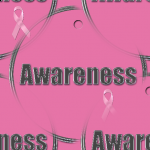 How many women do you know that have been diagnosed, are being treated for, have survived, or even lost the battle against breast cancer? The current statistic is that 1 in 8 women will get breast cancer!
How many women do you know that have been diagnosed, are being treated for, have survived, or even lost the battle against breast cancer? The current statistic is that 1 in 8 women will get breast cancer!
Breast cancer is occurring in alarming numbers of American women and nobody, not even the top doctors on the subject i.e. Dr. Susan Love, (who I recently heard at a conference), have definitive answers regarding the causes.
During menopause, many women turn to HRT for relief. Evidence linking breast cancer with HRT (Hormone Replacement Therapy) was recently released. This study, the largest ever done, was called the Women’s Health Initiative (WHI). It was first released in 2002 and now, more evidence from researchers following these women have found that HRT significantly increases a woman’s risk of being diagnosed with invasive type of breast cancer and cause death.
The new evidence suggests:
- high dose HRT increased a woman’s risk more than low-dose HRT, and
- combination HRT, both estrogen and progesterone carries an increase risk over estrogen only HRT.
After the initial WHI report was released in 2002, HRT use declined and a drop in breast cancer diagnoses was also evident.
“What’s important about this study is that it really provides tremendous clarity regarding the risks of hormone replacement therapy,” says Dr. Freya Schnabel, of New York University’s Langone Medical Center.
“I think from this point onward any woman who’s considering taking hormone replacement therapy will need to genuinely consider these risks,” says Schnabel.
What I believe is most important for women suffering from menopause symptoms such as hot flashes, night sweats, irritability etc, is to realize there are other options beyond HRT. Natural herbal remedies for menopause have been proven effective and have been used for generations of women. Women who chose to see health providers such as Acupuncturists, Homeopaths, Naturepaths and other Complementary Medicine practitioners know there are many other options for natural menopause relief.
Women really don’t need to suffer with hot flashes, poor sleep and low libido. Natural Menopause Relief does exist and it does work. If you are suffering with menopause symptoms, learn about other safer options than HRT.


